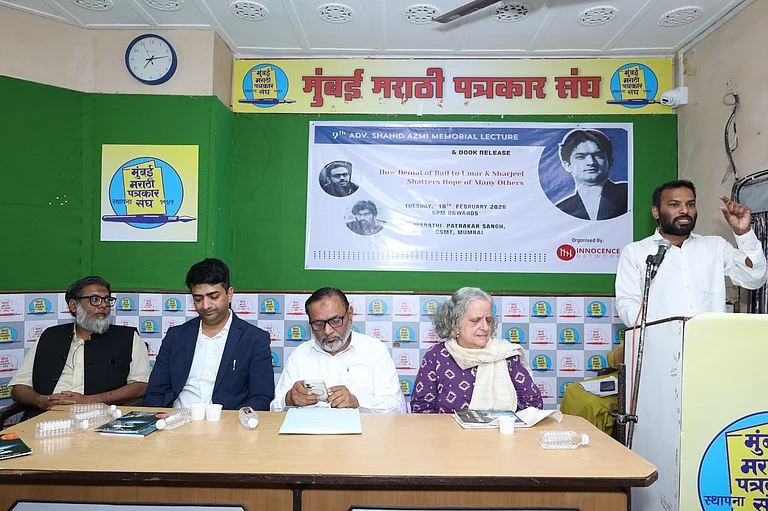The COVID-19 pandemic is likely to have an extensive and long-term influence on agriculture industry worldwide. Despite the steps taken by Indian Department of Agriculture Cooperation & Farmers Welfare to stem the pandemic’s impact on agriculture, one of the areas that will take a hit is the growing cooperation between India and Africa in the area of food and nutrition security.
Many African nations too are trying to cope with the pandemic. Take the case of the Republic of Malawi, a landlocked in southeastern Africa, which relies mainly on agriculture, especially on cash crops like tobacco, and cereal crops and legumes for food, all of which have been negatively affected by COVID-19 in some way or another.
Also Read| Why Agriculture Has To Talk Nutrition, To Make #ZeroHunger A Part Of Poshan Abhiyan
India- Africa collaboration has the potential of turning the existing farm-centered system into a more commercialized and productive business. But the governments in both India and African states needs to work closely with the private sector to ensure that farmers as well as small and medium-sized enterprises have access to the market with minimum loss and maximum profit on their agricultural products. This will help the growing need to respond swiftly to changing diets that improve immunity and help the growing economy.
Such innovations and investments in agriculture can secure food for Africans and Indians. The investors can also export the agriculture produce to other African countries, Europe, and the Middle East. India’s relationship with Africa in the field of agriculture is envisioned through long term and friendly bilateral cooperation. India assists several African nations with training
programs, institutional development, soft loans in the agriculture and allied sectors for the improvement of farming techniques, irrigation, soil quality assessment and improvement and supply of farm equipment.
The Indian governmentalso encourages private sector partnership initiatives in Africa; primarily by creating export-friendly policies. This is complemented by African policies to attract Foreign Direct Investment (FDI) through financial and regulatory structures that create easier business processes.
Also Read| Odisha Leads Way With Climate Budget
Partnering with civil society organizations help in sharing knowledge and models on self-reliance and development based on proven experiments in rural India to their counterparts across Africa. In the past decade, various non-governmental organizations have also started to work on women-to-women (W2W) partnerships in African countries.
Sustainable food production way forward
The lack of biodiversity in agriculture, which is responsible for homogeneous diets which limit access to food and lead to relentless malnutrition and hunger is a major concern for both India
and Africa. Efforts to make agriculture more environmentally sustainable is thus critical to tackle hunger and malnutrition. There is a crying need to adapt various agricultural technologies and methods which are free from pesticides, herbicides and contamination in order to ensure positive, nutritional outcomes.
This calls for more innovations to create more synergies in agriculture, food technology and biotechnology in order improve food and nutrition security. Improved productivity plays a significantrole at the household level by improving livelihood of the rural famers, while helping feed growing populations under erratic climatic conditions thus contributing to a higher Gross Domestic Product (GDP).
Advancements in food and agriculture production can lead to reduction in malnourishment and starvation. However, to sustain or maintain these advances and drive India-Africa’s agricultural transformation requires a lot more investment in the sector. These investments can create better-living conditions for farmers; according to the Malabo Declaration, in the Sustainable Development Goals (SDGs) and in Africa’s Agenda 2063.
In India, Public-Private Partnership for Integrated Agriculture Development (PPP-IAD) under Rashtriya Krishi VikasYojana (RKVY) aims to help farmers enhance productivity, earn benefits, and sustain themselves economically and socially. Agricultural value chains are also becoming more urbanized and consumer-driven, with exceptional standards on process quality and food safety. Agricultural production is rising, creating more employment along the value chains in the form of agricultural trade, farm servicing, agro-processing, urban retailing and food services. These dynamics arealso creating opportunities for growth within Africa’s food system.
However, there is still a huge lack of Research & Development (R&D) in connecting the dots and arriving at a strong fusion between agriculture and nutrition. This will also help reduce stunting, wasting and various other forms of malnutrition in children and women.
There is a need to develop multiple interventions across agriculture and nutrition and create a food chain that reaches to needy and malnourished citizens across the world. This requires a high level of awareness at every level in every country. Health & Nutrition education should be made compulsory in schools across Africa and India.
COVID-19 has made people realise the critical importance of a sound immune system. The time is thus ripe to inform people about the vital role of proper nutrition in our lives. Farmers should bemade aware off basic agricultural methods and what crops they can cultivate given their specific farming land and geographical conditions. They can also learn from Self Employed Women’s Association (SEWA) model, which has proven itself with it’s strategy of sharing experiences with the small holder women farmers in Ghana. Today, women in Ghana have built a supply chain and export about 200 tons of Shea butter to Japan. This is a gradual process, and people may like to start with growing essentials of their choice for their regular usage which can easily be grown in small kitchen gardens and then eventually scale up as needed. The time to start is now.
(Sahil Sharma is a food technologist and public policy consultant at The Coalition for Food and Nutrition Security (CFNS) based in India . Ken MacHence Gunsalu is Associate Scientist at Small Scale Livestock & Livelihoods Program (SSLLP) based in Malawi )






.jpg?w=801&auto=format%2Ccompress&fit=max&format=webp&dpr=1.0)














